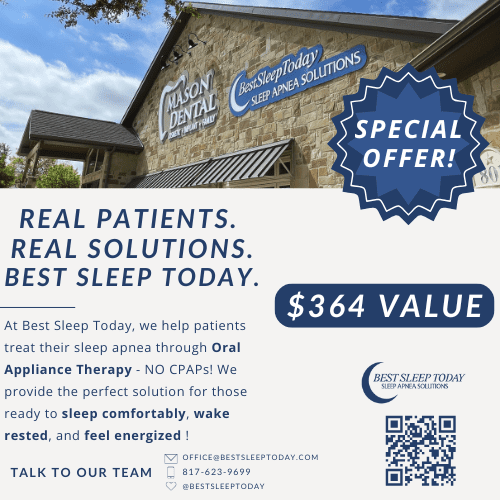Obstructive sleep apnea (OSA) is a serious and potentially life-threatening sleep disorder that affects millions worldwide. It occurs when the upper airway becomes repeatedly blocked during sleep, causing breathing to stop temporarily. These pauses in breathing can last from a few seconds to over a minute and may happen hundreds of times per night!
While loud, disruptive snoring is a common symptom, OSA is far more concerning than just noisy snoring. If left undiagnosed and untreated, it can have real consequences like heart disease, gasping/choking during the night, morning headaches, excessive daytime sleepiness, and high blood pressure.
Understanding Obstructive Sleep Apnea
OSA happens when the muscles in the throat relax during sleep, causing the airway to narrow or become blocked. This obstruction prevents enough air from flowing into the lungs, leading to lower oxygen levels in the blood.
The brain senses this lack of oxygen and briefly wakes the person up to restart breathing. This cycle repeats throughout the night, preventing the individual from achieving restorative, continuous sleep. Ultimately, this means that your body cannot fully recover or heal during its normal sleep cycle.
The Risks of Undiagnosed OSA
Cardiovascular disease
The repeated drops in oxygen levels that occur with OSA can put tremendous strain on the cardiovascular system. This chronic oxygen deprivation increases inflammation and can lead to atherosclerosis (hardening of the arteries), making individuals with untreated OSA more susceptible to life-threatening conditions like:
- High blood pressure (hypertension)
- Heart disease and heart attacks
- Stroke
- Heart failure
- Irregular heartbeats (arrhythmias)
Fatigue and cognitive impairment
The fragmented, non-restorative sleep caused by OSA results in excessive daytime sleepiness, fatigue, and impaired concentration. This can increase the risk of motor vehicle accidents and occupational injuries. Lack of sleep has also been linked to deficits in attention, memory, reasoning, and problem-solving skills.
Metabolic disorders
Mounting evidence shows connections between OSA and metabolic dysfunction. Sleep disruption and falling oxygen levels can contribute to insulin resistance, glucose intolerance, and an increased risk of:
- Type 2 diabetes
- Metabolic syndrome
- Obesity (which can further exacerbate OSA)
Mental health impact
Chronic sleep deprivation from OSA can take a significant toll on mental well-being. It has been associated with higher rates of:
- Depression
- Anxiety disorders
- Mood swings and irritability
The brain’s oxygen deprivation and hormonal disruptions caused by OSA may also directly contribute to these conditions.
Reduced quality of life
In addition to fatigue and possible cognitive deficits, OSA can cause a range of symptoms that undermine daily life, such as:
- Morning headaches
- Dry mouth or sore throat upon waking
- Difficulty concentrating
- Decreased libido
- Frequent nighttime urination
- Insomnia
These effects, combined with fragmented sleep, can profoundly impact productivity, relationships, and overall life satisfaction when OSA is undiagnosed and untreated.
The Importance of Early Diagnosis
Detecting and treating OSA early is crucial for preventing these severe health consequences and improving overall quality of life. Unfortunately, many cases go undiagnosed for years due to a lack of awareness or misattribution of symptoms.
If you experience loud snoring, excessive daytime sleepiness, morning headaches, or observed pauses in breathing during sleep, it is vital to consult with a healthcare professional promptly. They can evaluate your symptoms and, if necessary, order a sleep study to diagnose OSA accurately.
Once diagnosed, various treatment options are available, including continuous positive airway pressure (CPAP) therapy, oral appliances, weight loss, and in some cases, surgery. With proper treatment, individuals with OSA can experience significant improvements in sleep quality, energy levels, cognitive function, and overall health.
Don’t ignore the signs of sleep apnea. Early detection and treatment can prevent severe health complications and improve your quality of life. If you suspect you or a loved one may have OSA, seek medical advice without delay. Your future well-being may depend on it.












